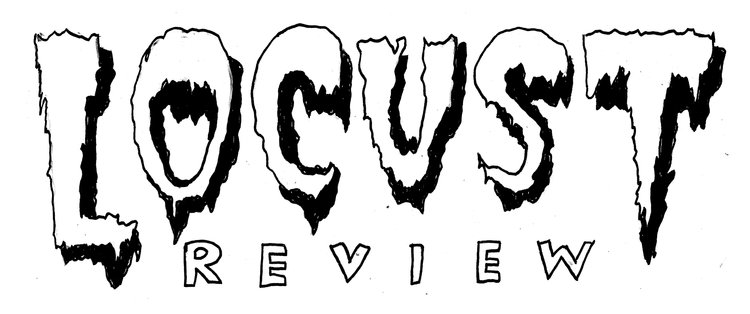Few serious people would consider Greg Abbott, the current governor of Texas, to be excessively subtle or nuanced. But even by the crude standards of right-wing politics in the Lone Star State, Abbott turned some heads when he announced on October 19th, in a post on Elon Musk's "X," that college and university professors can and should be fired for mere "ideological differences" with him and his de facto fascist outlook. Right-wing politicians usually talk about such things in a slightly more guarded way, deploying euphemisms and dog whistles.
I contend that Manos, while complaining about the lack of politics in Turl’s work, has written a very apolitical review, predicated upon an intellectual campism rooted in what China Miéville calls “folk Marxism,” received beliefs, rather than dialectical reason. Manos’s view of the politics of art seems entirely functionalist.
The Housing Act 1980 was the big bang, the origin story for Normal Island. After World War Two Britain was desperately short of housing stock. State action, by both Tory as well as Labour governments, got homes built. Even in the 1970s work was ongoing, bomb sites were still being cleared. The 1980 Act, however, promised council tenants the right to buy their homes. In time a gigantic amount of equity was released. By 1986, financial markets were deregulated and this equity could be traded with greater ease and velocity.
There is one form of the Romantic culture that does not advocate the return to the past, but a detour by the past, towards an emancipated future. This we call revolutionary Romanticism, which begins with Rousseau, followed by Blake, Shelley, William Morris and many others.
The default cultural logic of neoliberalism and the political center is capitalist realism. In response the cultural logic of working-class emancipation (socialism) is critical irrealism. The ir – or no – of critical irealism is opposed to a particular kind of realism. Therefore, we should examine it more closely.
I think every place has a lot of lost souls, but also there's the impossibility of representation. We're from here. I'm from this town, Carbondale, Illinois, and we're familiar with the nature of the loss here in a way we might not be intimately familiar with in other places. But the sort of impetus was the realization the art space is a theatrical space.
The effect is important, not so much the actual individual piece of work. So if you have some good effect, of course you can have good effect or bad effect, but let’s hope that whatever you’re creating has some good effects. As long as that good effect fertilizes the soil that’s what I care about.
An art exhibit at the Austin-Irving Branch of the Chicago Public Library (on Chicago northwest side) was abruptly removed on September 18th by order of the city's Library Commissioner following political complaints by two unnamed individuals who are city employees and are on city payroll. Without contacting the Branch Manager or the show’s curator / organizer, the exhibit was censored and ordered to be taken down early. The show was installed on July 5, 2025, and was scheduled through September 27, 2025.
Anyone with enough sense can see how stupid the hue and cry over Kneecap is. But then, we live in a particularly myopic age, aggressively forgetful and wantonly incurious. One prone to performative pearl-clutching over simple talk of murder while real murder (indeed, genocide) takes place on a daily basis.
Orson Welles called Los Angeles “a bright, guilty place.” David Lynch, upon his arrival, noticed the brightness. “I love Los Angeles,” he wrote in Catching the Big Fish. “I know a lot of people go there and they see just a huge sprawl of sameness. But when you’re there for a while, you realize that each section has its own mood. The golden age of cinema is still alive there, in the smell of jasmine at night and the beautiful weather. And the light is inspiring and energizing. Even with smog, there’s something about that light that’s not harsh, but bright and smooth. It fills me with the feeling that all possibilities are available. I don’t know why. It’s different from the light in other places.”
If we assume a priori there is such a thing as an objectively “good poem” — but do not unpack what that means — do we not risk making normative evaluations of other poets’ work?
It’s been a year now. A year of declaring, forcefully, repeatedly, that the history of Israel and Palestine didn’t start on October 7th, that Palestinians deserve to live dignified and free, that rejecting Zionism is not antisemitic. That what is happening is indeed genocide.
A year of warning that this was bound to spin out into a wider regional conflict. As it now has. Lebanon. Yemen. Syria. Volleys of missiles between Israel and Iran, the possibility of all-out war creeping closer.
There are four great interwoven crimes that create capitalism — enclosure and the creation of the proletariat, industrializing chattel slavery, colonization/imperialism, and the subjugation of women and gender normativity. Not one of these is possible without racism. Not one of them is “over.” Not for working-class and poor people. Not one of them has stopped its ruthless destruction of life and being. But the mountain will come crashing down in a wave of a billion voices, accusing, exposing, confessing, rebelling. Hamilton’s book of brilliant poems is, in this sense, prophecy.
I want to create characters not that people aspire to be like but whom people see themselves in who end up doing things they already aspire to do but won’t, for whatever reason. Probably this penchant for fictional violence against wealth hoarders will get me into trouble eventually. Until then, however, I will continue to write about working class robots in sewers trying to shoot the evil meat above.
The internet promises democracy but delivers reactionary politics (and is designed to do so). It promises expression and valorization of the subject, but delivers, more often, dopamine denial and depression. Meanwhile the analog, at least in the arts, promises authenticity, but fails to deliver much more than rarefied bourgeois spaces, out of touch with the vast majority of the human race — as Amiri Baraka would say, “fingerprints of rich painters”... Or, empty art museum spectacles; Epcot Center immersion for the cosmopolitan bourgeois and petit-bourgeois.
FOR SOME reason, impenetrable to any German leftist, there seems to be the strange US-American liberal assumption that Germany is a lederhosen-wearing, beer-sipping liberal paradise, where we hug refugees all the day, care for mother nature, and organize a perfect ‘socialist’ (in the liberal use of the term, meaning social-democratic) society, and with the guidance of a dear and democratic government, we care for our people and the world. While it will forever be a mystery for me how anyone could believe this in the first place, I am going to debunk this assumption in this article. My wager is that, by observing the current situation in Germany, we might find tendencies and latencies that elide developments within capitalist realism that are elsewhere still not fully feasible.
BCDT reminds the screen reader they aren’t reading paper. It reminds the print reader they are reading paper. It reminds the print reader they aren’t reading a screen. It reminds the digital reader they are reading on a dream stealing machine. It reminds those holding the physical design of ephemerality.
Edward Bond died on March 3 a cumbersome cultural figure. Always controversial, but celebrated in the 1960s and 70s, no major British stage has taken on a new work from him in decades. He died as Israel inched into its fifth month of its massacre in Gaza. And he died at a time when theatre matters less than it has at probably any point in human history.
The Theatrical Party embraces the organization of pessimism in contrast to the false optimism of the left. To be a revolutionary pessimist is to separate the political actor from their role. It is this separation which, in the epic theater of Brecht, invited a critical outlook on the performance from its participants and spectators — the first step in the transformation of spectators into collaborators, a task integral to both theater and the forging of a revolutionary party.
We want a record of the real in the work — as in the cotton and ash — as well as reclamations of our history and imaginaries constructed against the limits of working-class imaginations by capitalist realism. So the individual pieces are sort of vignettes of class pathos and poetry, often in an irreal idiom, and all together representing, as much as we can, the limitless expansive nature of these stories in aggregate.
What is the liberal bourgeois approach to this apocalyptic exposure? In terms of policy the response seems to be defined by absence — a bewilderment of futurism interrupted by the supposed incoherence of Trumpism and random social failure.
The Irrealist Combat League is for the construction of performances — for aberrant departures from the motions of everyday life, for the active imposition of proletarian will on space and time, for the enrichment of the political-imaginative capacity of the revolutionary class.
IT COULD just as easily come from the world outside our window as it could the screen of our computer. By now cyberspace and meatspace are inextricable, intertwined and mutually dependent. Where just a few decades ago we would look at the Los Angeles of Blade Runner or the Detroit of RoboCop as cautionary tales, today they are cousins of the present. The sight, the sounds, the smell, the structure of feeling of uneven and combined apocalypse – high tech, low life – these are with us right now, staring us in the face.
In our quixotic attempt to map, explore, and preserve the gravediggers’ multiverse, the Born Again Labor Museum has created the third Irrealist Worker Survey.
Many of the best Marxist cultural interventions come from an intersection of Marxism and the Romantic/Gothic, either intentionally, or among Romantics moving into Marxism (even as they reject the Romantic),12 imparting a kind of working-class messianism. Because art cannot change the world — only the class can do that — this messianism often takes on a displaced character. Aaron to Moses. John the Baptist to Christ. Bodhisattva to Buddha.
A single mother is driving past an abandoned factory on her way home from a low paying job. She is hungry. Above the factory a billboard floats in the sky advertising a succulent feast. But it does not strike her — or us — that this is odd, that her hunger has manifested itself above the factory ruin in an image of unavailable food. When we step outside ideology we see this absurdism for what it is.
While the critical irrealist ties the emancipation of the constrained subject to a collective fight against the forces that constrain that subject, the fascist occultist seeks unity with the constraining forces. Each responds to the disfigurement of individual subjectivity under the “normal” workings of capitalism; each rejects, to some degree, the profound lack of imagination engendered by capitalist realism. How they are opposed, in irrealist cultural performances, gestures, artifacts and media, is largely in the different ways they position/construct/code subjectivity in relation to the sources of this disfigurement.
THE MICHELISTS, who renamed themselves the Futurians in 1939, were a group of mostly working-class and precarious middle-class science fiction (SF) fans, largely centered in New York, who, in the 1930s, aimed to take over SF fandom for Communism and the Popular Front.
Wandering through the areas of London – Marylebone, Stratford, Lewisham, Hackney Wick -- one gets the sense she is pensively but frantically trying to piece together a history-from-below of every street-corner and underpass. Her descriptions digress into memories, often several layered on top of each other, rabbit-holes within rabbit-holes: 1989, 1996, 2003, friends, strangers, acquaintances, piss-ups, drunken brawls, bonfires, people who fell in-and-out of love, bored afternoons, demonstrations and riots, previous drifts that will bring her back into the moment in front of her. “The polychromatic riot of London’s histories,” she says, “travel in shimmering, tangled lines.”
What the cosmos -- and space exploration -- were part of a great utopian impulse, positioned against war, against privation, and against death itself? What if this imagination was projected onto the surface of Mars instead of Elon Musk’s banal acquisitiveness? This is, in part, the history of Russian Cosmism, an esoteric philosophy that claimed not to be an esoteric philosophy, nurtured by a 19th century Moscow librarian named Nikolai Fedorov. He called it the philosophy of the Common Task. In the 20th century, cosmism would influence the early Soviet avant-garde, science fiction (SF), medicine, and rocket science, mingling with the revolutionary socialist impulses of Bolshevism and the October Revolution, before its eventual marginalization and repression following the Stalinist Thermidor
Rationality tends to be sutured to the concept of realism, so instrumental rationality in particular presupposes a proper epistemological mapping of the territory of “the real,” for the goal of controlling it. Mark Fisher’s idea of “capitalist realism” describes the totalizing phenomenon, that form of aesthetic and intellectual dominance.
To the fading and warping strains of Sammy Davis Jr.’s “Candyman,” the opening scene of the 2021 version of Candyman emerges with shadow-puppets, silhouetting a Black man being chased. A very aware little Black boy, named Billy, plays out this theme on the wall of his home in the Cabrini-Green projects of Chicago.
Tingle glosses past the wider implication of a spell that gives everyone exactly what they need when they need it, choosing only to say that it was banned for destroying the economy, upending governments, and ruining the game show industry.
The dominant UFO visitation myths echo popular occultism in capitalism. The individual is abducted or visited -- in a secular-but-not-secular epiphany -- enweirding their life with either trauma or good fortune, or both; even if the good and bad fortune is a mere valorization of the formerly discarded individual within a cruel social totality. This is the ufology of “normal’’ bourgeois capitalism; the kismet of the UFO encounter.
A massive crowd of mostly black-clad protesters faced off with an army of police in riot gear. As yet another tear gas cannister was fired, a bright spot of pink emerged on the front line. One single bright pink umbrella opened, defiant against the horde of jackbooted thugs. This was perhaps the beginning of the curiosity that was the Capitol Hill Autonomous Zone (CHAZ) alternatively known as the Capitol Hill Organized Protest (CHOP).
On November 12th, 2020, Locust Review editors Alexander Billet, Holly Lewis, Anupam Roy, and Adam Turl presented at this year’s Historical Materialism conference. As this year’s conference was online — due to the plague — it was streamed live on YouTube. Our presentations dealt with various arguments regarding critical irrealism as a key socialist cultural strategy.
Salvagepunk and hopepunk share an antipathy for many of the so-called “realisms” that have come to dominate our culture.
In our quixotic attempt to map, explore, and preserve the gravediggers’ multiverse, the Born Again Labor Museum has created the Irrealist Worker Survey. More surveys with be forthcoming. If you want attribution in any future exhibitions or educational material, please fill out your name in the fields at the bottom of the survey. If you wish to remain anonymous…





































